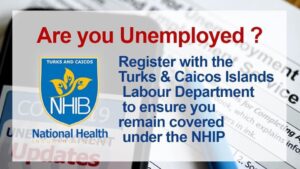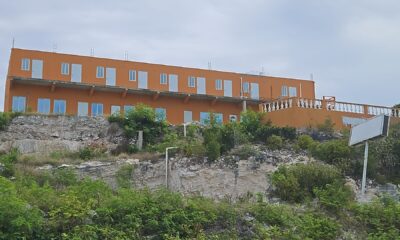#TurksandCaicos, January 15, 2022 – It is clear that the Hon. Premier and his Cabinet have lost all control of the spread of COVID-19 in the Turks & Caicos Islands. We all have seen a lack of action, and a lack of complete information, and the lack of innovation and proactivity in response to Pandemic. The local picture of COVID-19 is now worse than it has ever been. We are seeing a lack of urgency and a lack of leadership in response to this new COVID-19 wave in our beloved Turks and Caicos Islands.
The daily COVID positive numbers being reported continues to be alarming high, and making things worse is the fact that the reported numbers do not include the lateral flow COVID positives, which are roughly 4 times higher than the daily reported positive numbers of the dashboards. It is suspected that for every one case reported on the dashboard, five lateral flow COVID-19 positives go unreported, and not positive persons not followed up or monitored. Also, there is no requesting of contacts to report for testing, no compliance or enforcement of regulations being carried out and they are not visible as complaints are been heard by the Public at large.
regulations being carried out and they are not visible as complaints are been heard by the Public at large.
It is also very alarming to hear the government now resorting to handling the responsibility of the management of the Pandemic to the individual person, as they are now vigorously pushing this “personal responsibility “tag line.
- COVID-19 is a “public health” disease, which caused a “global Pandemic”, hence it is the responsibilities of all Governments in all countries for public health. Our elected Governments has to bear the responsibility of safeguarding our citizens and borders, bear the responsibility to make decisive, timely, and proper decisions, bear the responsibility of strengthening the country’s public health response, bear the responsibility for preventing the spread, and bear the responsibility of increasing and improving the treatment and care options. This is the Elected Government’s work, not the personal responsibility of our citizens.
It is evident that the Government is suffering from Decidophobia, which is the irrational fear of making decisions.
With all the advances and information available, with all the infrastructure that had to be put in place (Lab PCR testing, High Dependency Units, Oxygen Generators, Vaccine availability, epidemiological software, private providers lab testing, approved rapid COVID-19 testing, travel portal, proven compliance and viral spread mitigating measures, the Hon. Premier and his Cabinet response shamefully underperforming in their response to the work they said that they came for; they are definitely not ready for the Pandemic work!
The Hon Premier and his Cabinet has not provided for the increase and expansion of Health Care Professionals in the Turks & Caicos Islands, to prevent the possibility overwhelming of the Health Care System.
The Government has not learned from the first two waves of the pandemic, and has not been proactive (anticipating possible future outbreaks and increase in positive COVID-19 Cases, and preparing for the occurrence ahead of time, like we do each year for hurricane season). What we are seeing now is them being reactive (trying to take action after the damage is done, and great increases in positive cases are happening).
The Government has not:
- expanded Government operated testing facilities, in particular in Grand Turk, who is now receiving Cruise Ship Passengers. By now a testing site should have been place near the cruise center.
- The Government has not implemented any lifesaving early treatment options that have been approved, and are available.
- The Government has not made proper adjustments to the country’s COVID-19 mitigating measures, that can prevent high increases in viral spread and hospitalizations, while protecting livelihoods.
- The Government has not provided complete and timely information to our people, bringing the people along by providing credible, evidence based scientific information, that can cultivate buy in and restore trust.
- The Government has not expanded the availability of face masks, like was done with condoms during the peak of the AIDS epidemic (where condoms were made freely available in all public places- Public and Private offices, restaurants, bars, etc.)
- The Government has not increased policing and compliance activities (which now appears to be nonexistent).
- The Government has been slow to respond and to make suitable adjustments to the measures before the
 further progressing of the spread of the virus.
further progressing of the spread of the virus.
- The Government has been inconsistent in the restrictions that are in place; preventing and closing down some forms of gathering, while allowing others which has the potential to be a “super spreader” event.
- The Government has not any advancements to the monitoring and tracking of COVID-19 positive persons.
- The Government has not adapted nor adjusted their policies on vaccines, natural immunity, vaccine mandates, with all the new knowledge information available now. There has been no updating or coming up with a different plan from the knowledge of vaccinated and bolstered individuals are still becoming infected, and still able to spread the virus, and still being hospitalized. Rather it appears that the Government’s only focus, is to promote the vaccine as if that is the only measure that is needed.
The Government has failed in protecting the family islands with a small and older population, in particular Salt Cay and Middle Caicos, from viral spread.
No one wants to go through another lockdown, and we do not want to see our country in one. Lockdowns are bad for our economy and for our people, as was explained by the Deputy leader and myself in our last PTV interview.
No one want to see another person lose their life from being infected with COVID-19, when there are effective early treatments options available.
We the PDM again urge the Premier and his Government to make the appropriate decisions that could prevent further increases in positive cases, further deaths, further economic losses, and further time away from school and work.


 Caribbean News7 days ago
Caribbean News7 days ago
 Caribbean News7 days ago
Caribbean News7 days ago
 Caribbean News1 week ago
Caribbean News1 week ago
 Caribbean News1 week ago
Caribbean News1 week ago
 Bahamas News7 days ago
Bahamas News7 days ago
 News7 days ago
News7 days ago
 Bahamas News1 week ago
Bahamas News1 week ago
 News7 days ago
News7 days ago



























